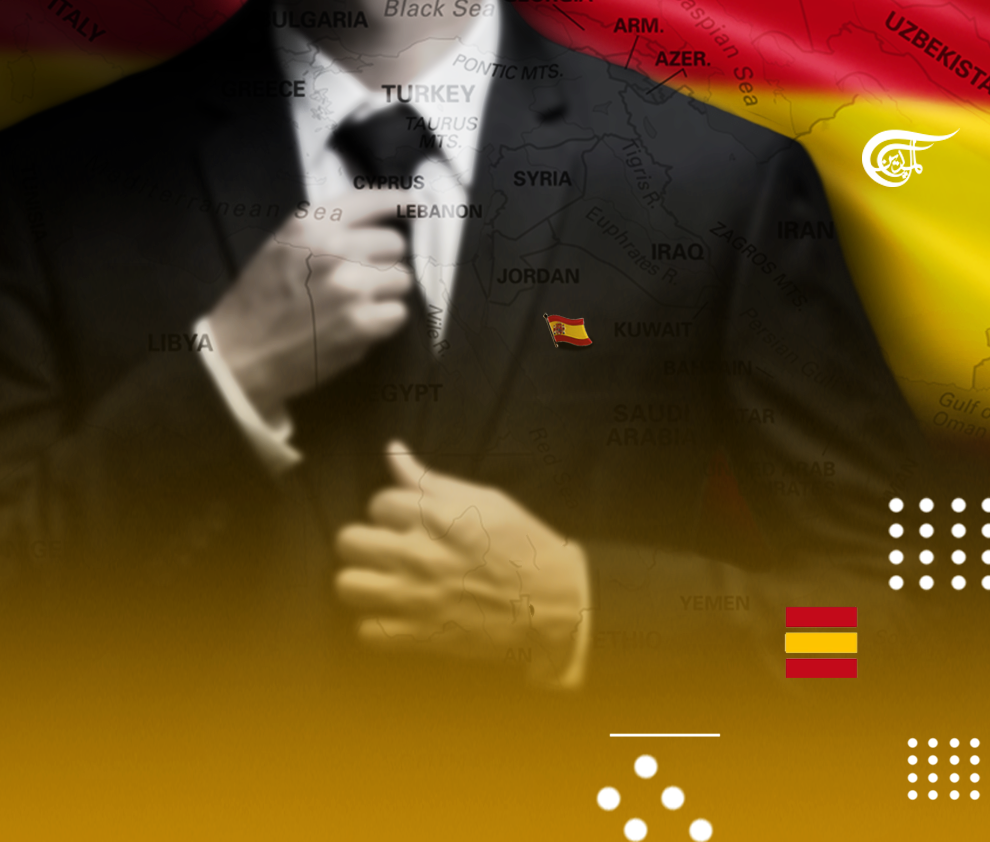Waiting for Spain Back in the Middle East
Self-absorbed by domestic tensions, Spain wade quickly out of the international arena.
Back then already vanished as a global empire, Spain had nothing to do with Middle Eastern events following the collapse of another classical empire, the Ottoman. Equally, Spain suffered from the ambitions of the French and British modern empires and from a United States on the rise that took over Spain’s last overseas colonies of Cuba, Puerto Rico, and the Philippines. All that Spanish “disaster” happened less than twenty years earlier than the Sykes-Picot secret agreement, the Balfour declaration, and other infamous pieces of Western self-oriented, and double standard diktat over Bilad al-Sham and other Middle Eastern territories. The poisoned legacy of these self-seeking agreements is still evident nowadays.
All this happened without Spain having any kind of responsability in modelling the region. As the years passed by, Spain was regarded as a neutral and trustable partner by most of the region’s actors, either republics or monarchies. Beyond a rich common history - because of the expansion of the Umayyad civilization in Spain - Spain’s Arab oriented policy was very much appreciated. Just two years after Syria’s Independence, following the evacuation of the last French soldier, both countries established full diplomatic relations. It was a powerful initiative taking into account the creation, in the very same year, of the “State of Israel”, with an enthusiastic and non-critical support of its following actions, by other Western powers. In fact, Spain did not establish diplomatic relations with “Israel” until 1986, even though the cultural ties with Sephardi Jews, whose origin can be traced back precisely to Spain, helped to maintain open channels with Tel Aviv, and later develop the bilateral relationship, once embassies were opened.
All that immaculate reputation and balanced policy provided Spain respect in the region and beyond. It was not by chance that one of the very last acts of the Cold War period was held in Madrid co-sponsored by the US and the USSR. The Madrid peace conference has been seen as the last serious effort to broker a fair solution to the many territorial issues that followed the creation of “Israel”. On the trail of the conference, Spanish diplomat Miguel Ángel Moratinos was appointed European Union Special Representative for the Middle East, a position he held between 1996 and 2003, during the period in which the EU became more independent from Washington when tackling Middle Eastern thorny issues.
Just one year after Moratinos tenure concluded his mission; and after Spain awkwardly supported the Iraqi invasion, Madrid suffered from Al Qaeda terrorist attacks. Since then, Spain witnessed how its three long decades of internal consensus on foreign policy eroded. The country entered into an economic slump and dealt with the situation by a succession of weak governments due to insufficient parliamentary support. Corruption scandals erupted and wobbling policies prevailed over the country when facing separatist demands in Catalonia, north-eastern Spain.
Self-absorbed by domestic tensions, Spain wade quickly out of the international arena. This decline phase pointed up Spain’s subsidiary and thus irrelevant position during the long last decade of unrest and violence in the Middle East and North Africa. With a somehow lack of self-respect and inconstancy with its previous engagements with both regions, Spain followed the consensus imposed by the Washington-London-Paris-Berlin axis, favoring NATO bombing of Libya and other actions for regime change in the best interest of those four Western advocates of interventionism. In the case of Syria, Spanish senior diplomats admit privately that the country has lost a great opportunity to overtake France having a constructive approach, like the one of the Czech Republic, which never closed its embassy in Damascus.
The reward for this obsequious non-policy was the designation of Spaniard Josep Borrell as High Representative of the European Union for Foreign Affairs and Security Policy, a long title for a very vacuum position. Borrell – a politician but never a diplomat who spent his time, as a student, in a kibutz in Palestine - admitted this matter of fact during the last crisis in Gaza, when he acknowledged that the EU could not do anything to stop “Israel”, and the only State who could bridle it is the US.
Despite this Spanish recent record, many countries in the Middle East unsteady, still expect the return of Madrid to more independent and positive oriented policies. While Egypt rebuked Iraq for its standings, Saudi Arabia softened its previous positions with Qatar and even Iran, and the UAE led a return to Syria, as an initiative to encourage Spain in adopting the same direction. Syrian officials and State media have been extremely patient and respectful to the many Spanish setbacks of this decade. It showed full respect to Spain’s territorial integrity and political unity, with non-interference in its current crisis with Morocco concerning Spanish Ceuta issue, including its position on the Western Sahara as well. Again Syria, but also other countries showed through their State media a genuine solidarity when, in early 2020, Spain was severely hit by Covid-19 and sanitary masks and other health materials were seized in Turkish airports in their way to Spain.
But indeed, time is running out. Syria and other Middle Eastern countries are experiencing significant changes and other actors are taking advantage of reconstruction efforts and cultural possibilities. Argentina, Chile, Cuba and Venezuela are Spanish speaking countries, and their embassies are fully operating in Damascus while the Cervantes Institute, Spain’s soft diplomacy arm, is shut and the Spanish embassy as well. Beside those countries, the giant Latin America and BRICS member Brazil also hold business as usual in the Syrian capital, enthusiastically participating in the economic and rebuilding exhibitions. It seems it’s time for Spain to reset its already too long ago paralyzed diplomatic clock.

 Pablo Sapag
Pablo Sapag
 6 Min Read
6 Min Read












